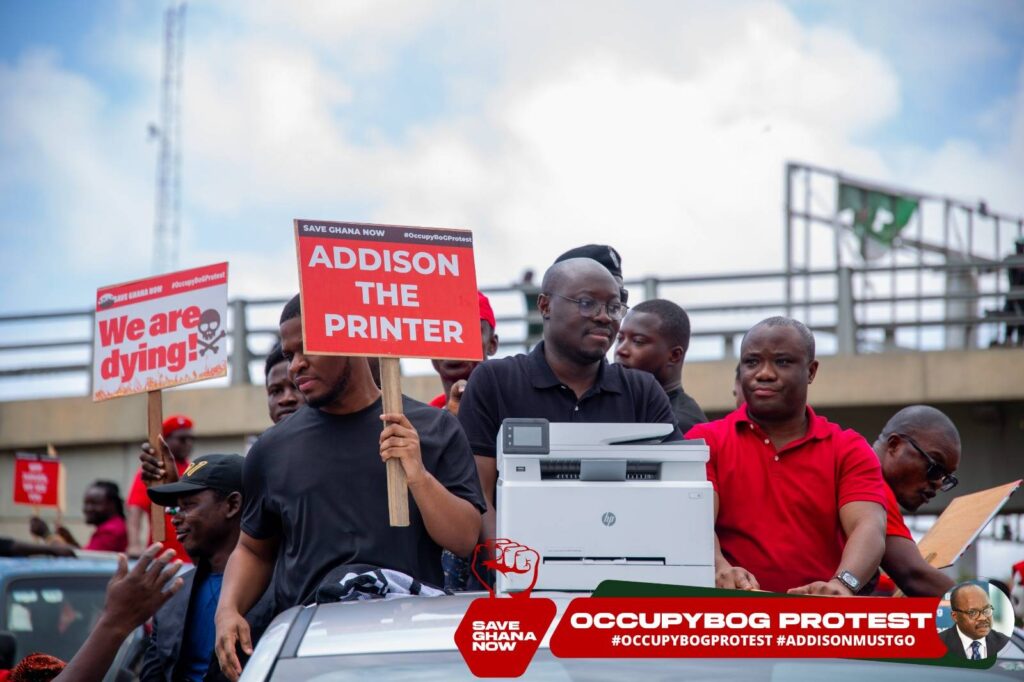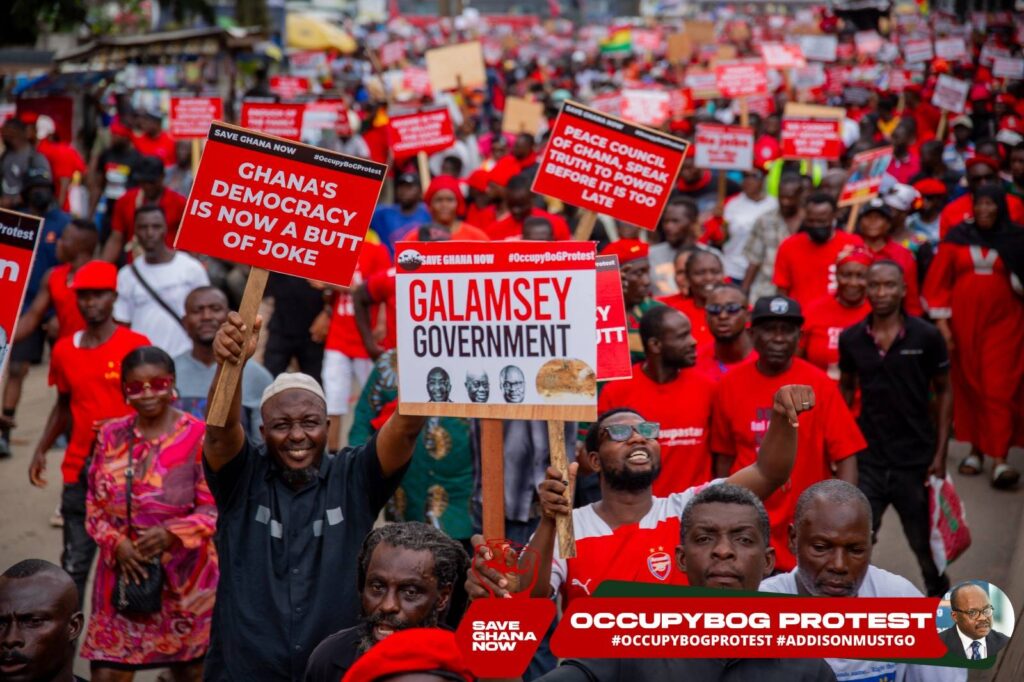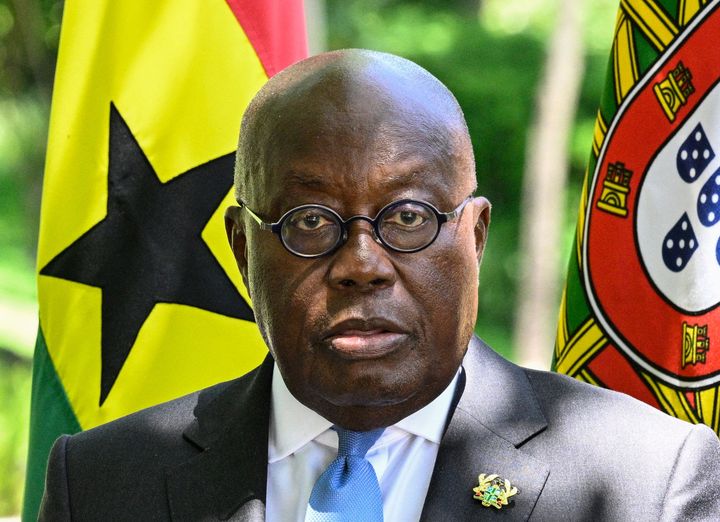Ghana’s 79-year-old President Nana Akufo-Addo has come under fire with allegations of living a lavish lifestyle through clandestine printing of monies by the Bank of Ghana while the country grapples with an unprecedented economic crisis.
Critics have accused the President of indulging in a “champagne lifestyle” with his vice president, Dr. Mahmudu Bawumia, while ordinary Ghanaians suffer the consequences of a failing economy.
At a demonstration dubbed “OccupyBOG” to demand the resignation of the Central Bank Governor, Mr. Ernest Addison, protesters expressed disappointment in the septuagenarian for his poor leadership that has brought the country’s economy to its knees.

The accusations stem from revelations that the Bank of Ghana, without proper parliamentary oversight, has been printing billions of cedis to finance the President’s alleged opulent lifestyle.
“Governor Addison printed money to finance the champagne lifestyle of this President Akuffo Addo on an akpeteshie budget,” said the Minority Leader Dr. Cassiel Ato Forson
“Today, our country is on its knees. We will not accept it. The central bank of Ghana today is bankrupt technically; you are insolvent; you have negative equity of 55.1 billion Ghana cedis and a loss of 60 billion Ghana cedis in one year.”
This unauthorised action by the Bank of Ghana governor has sparked outrage among citizens, who are already burdened by rising inflation, increasing unemployment rates, and widespread poverty.
Tuesday’s protest centred on the resignation of Bank of Ghana Governor Ernest Addison, but the bigger blame goes to the president, who is alleged to be the beneficiary of the shady minting money.
Ghanaians have expressed their frustration with the perceived misuse of public funds and the lack of transparency in financial decision-making.

The president has over the years been blamed for living an extravagant lifestyle, contrary to the principles of responsible governance. Foreign trips on private jets and expensive possessions are among the claims made by critics, further exacerbating the divide between the ruling elite and the struggling masses.
The economic consequences of the Bank of Ghana’s unapproved monetary policies have been severe. The unchecked printing of cedis has led to hyperinflation, causing the value of the currency to plummet. Prices of basic commodities have skyrocketed, making it increasingly difficult for ordinary Ghanaians to make ends meet.
Public sentiment continues to grow, with citizens expressing their dissatisfaction and calling for accountability. Numerous protests have taken place across the country as Ghanaians demand transparency, responsible leadership, and immediate action to address the dire economic situation.
As the crisis deepens, questions surrounding the president’s conduct and the Bank of Ghana’s clandestine moves persist, while protesters have vowed to return to the streets again until Mr. Addison resigns.









